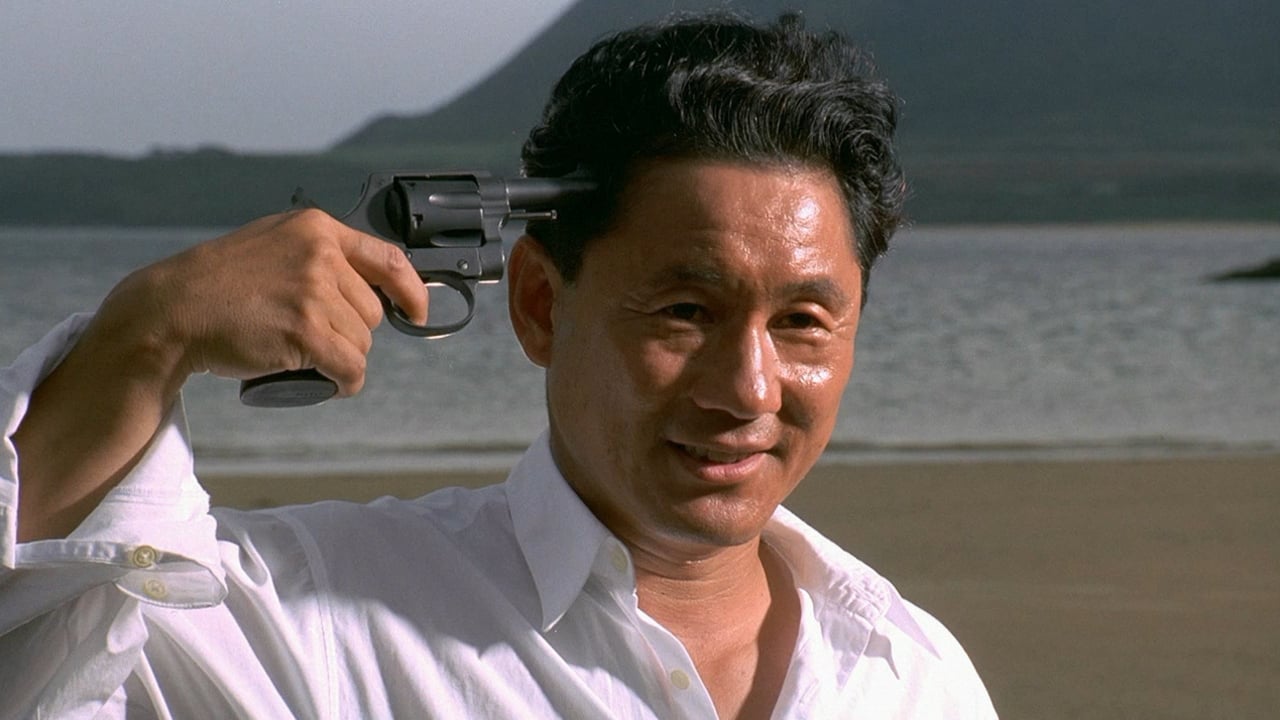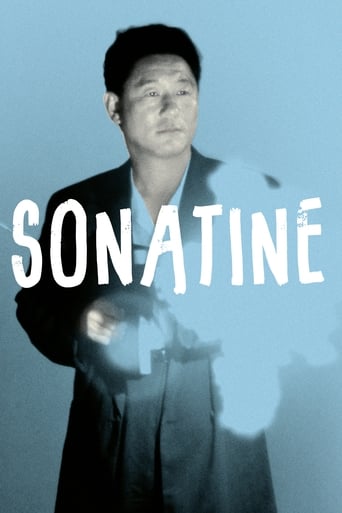

Some things I liked some I did not.
... View MoreThe film never slows down or bores, plunging from one harrowing sequence to the next.
... View MoreThe storyline feels a little thin and moth-eaten in parts but this sequel is plenty of fun.
... View MoreThere's a more than satisfactory amount of boom-boom in the movie's trim running time.
... View MoreMurakawa is a Yakuza who is sent to Okinawa by his boss, Murakawa suspects that this is a set-up but he goes anyway. When he gets to Okinawa with his crew he finds that things are worse than he previously thought two Yakuza clans are at war. Murakawa dispatches a group through a gun fight and hides out in a beach house with his remaining soldiers.I've known about Kitano's legacy and so decided to watch 'Brother' his American debut....I found it quite boring and well, a disappointment and so I decided to check out his earlier stuff...and let's just say that I consider him one of the greats..minus 'Brother' which was clearly made for American audiences and required Kitano to abandon what made him great...his weird humour.Sonatine at first starts off as a typical gangster movie, you have the gangsters and their traditions with violence following and then the film takes a turn. The Yakuza's are left to their own devices having to entertain themselves in a remote beach house, I found this hilarious as Murakawa a man broken by years of violence and unhappiness (My own interpretation) finds a little ray of sunshine as he 'hangs out' with his gang on a friend basis rather than a boss, course then comes the highlight of the film the beautiful Aya Kokumai who falls in love with Murakawa...And then violence follows one more, only this time the violence is truly justified.My favourite scene is when Murakawa waits for Katagiri and the other guy to fall into his 'trap'...Absolutly hilarious and then there is the brilliant sumo scene! Just wow...It's truly a masterpiece of Japanese cinema.
... View MoreOne who gave the movie ten stars must have been on heroin at the time cause this is possibly the worst movie I have seen in my entire life. Got it sent to me accidentally through net flix and I'd rather eat a live kitten than watch this horrible movie ever again. If at all possible, they could compensate me for my time lost while watching this absolutely terrible movie, I would demand that they give it back.. I'm not joking, I'm easy to please when it comes to movies and there were maybe one or two rare funny parts but this movie is trash... If you see this movie on the shelf it I'd best that you take it off the shelf and immediately set it on fire! Sonatine is easily one of the worst movies to come out in the 90's and I would argue that tony grave.
... View MoreI recently purchased Sonatine boxed with "The Bind Swordsman: Zatoichi" and just got around to viewing both. I've become a big fan of the Japanese cinema but these are the first Kitano films I've had the pleasure of viewing. I have to admit I'm hooked.I can't remember the last time I recoiled in shock from a bloody shoot-out and laughed until I cried 15 minutes later. The scene on the beach with the guys in the sumo ring bouncing around like the paper cutouts in the earlier scene is hysterical.I think I'll give it a couple days and watch it again because there are lots of details I missed the first time around. Definitely a thought-provoking movie.
... View Morei gotta say i was a bit disappointed with this film. i thought i was in for a good yakuza film but a lot of it was plodding and dull. i understand and support the concept of adding a fresh perspective or something unexpected to a tired genre but in the case of the juxtaposing scenes of violence with scenes in which the mobsters play like children i simply found it distracting and wasteful. the movie centrally focuses on the main hero who is built up slowly through the movie but then any building tension is undermined by meaningless shenanigans. all of the other characters come of as even less then one dimensional, and the scenes of violence are filmed in a way that makes them look amateur night.could have been better 5 out of ten
... View More